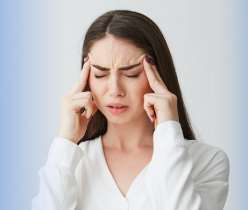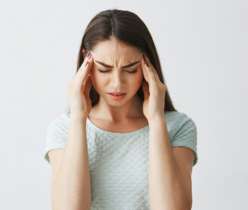There are some migraine medicines which you might take to manage your health condition can either lead to or aggravate a headache. You need to work together with your healthcare provider to determine any of the pharmaceutical agents are triggering your headache.
Medications are supposed to help and manage your condition, not meant to hurt, right? But by default, there are some drugs that are commonly used for treating certain conditions cause pain even the ones available without a prescription.
Medicines responsible for causing headaches
Prescription medications are one of the leading causes of headaches. The moment you consume a prescription medicine. You start experiencing drug interactions and adverse effects associated with the medicine, which increases the chances of developing a headache. Such medicines could be the cause of a headache. Sometimes, a drug recommended for migraine cure can worsen your condition. It is said that the fewer prescription medication you take, healthier you will be in your future.

Also Read: Everyday Tips to Treat Migraines
Some medicines that can cause a headache, especially when you are taking them regularly include:
- Blood-thinning medicines such as heparin, aspirin, or warfarin
- Cold medicines such as antihistamines and decongestants
- Ergotamine
- Oral contraceptives or birth control pills
- Hormone therapy such as progestin and estrogen
- Medicines for treating cancer, especially chemotherapy drugs
- Medicines for preventing organ transplant rejection
- Radiation therapy
- Caffeine
- Corticosteroids such as prednisone
- Heart and blood pressure drugs such as nitroglycerin
- Overuse of fat-soluble vitamins such as vitamin A and vitamin D
You will notice that if you stop taking medicine or start taking a low dose, your headache will disappear. If you have doubt that your headache is caused by the use of a prescription medicine, consult your healthcare specialist about your side effects. Do not stop the treatment until you have words with your health care provider.
Think about whether non-prescription medicines, caffeine, or alcohol are behind your headache. Limit the use of these items to check whether your headache goes away. Be sure to exercise caution with alternative treatments. Sometimes an alternative therapy can be a cause of your headache, therefore let your health care provider know about any alternative therapy that you are using.
Medication overuse headache
People having migraine experience episodic attacks of multiple symptoms such as vomiting, nausea, sensitivity to light and sound, etc., but such people normally go normal in between attacks. While in case of migraine medicine overuse headache, a dull, constant headache develops which is often worse in the morning. It happens every day; the type of a headache occurs most days with episodic migraine pain.
Link between Rebound headaches and medicines
People with a migraine or with a history of a migraine are prone to develop this condition. Rebound headaches are the chronic ones that develop due to overuse of pain medicines. This often causes trouble for people who experience severe headaches frequently. A pain medicine can only provide you relief for a limited period. Once the effect wears off, the headache develops again and often worse than it was before. This cause a patient to take more pain medicine, then again the same thing happens, the headache returns and such type of headaches are often called as rebound headaches. There are some medicines that are responsible for causing rebound headaches and these are:
- Prescription medicines such as hydrocodone or codeine
- Nonprescription drugs like aspirin, acetaminophen, and non-steroidal anti-inflammatory drugs (NSAIDs).
Talk to your healthcare provider if you suspect that your headache is caused by a non-prescription or prescription medicine. Your healthcare expert will tell you after determining your condition, whether you need to lower the doses or to stop the treatment.
Also Read: Cause & Cure of Tension & Headache
The information contained in the web page does not replace the advice of a healthcare expert. Therefore, discuss with your health care specialist if you have any suspect any of the medicine triggers your headache. Consult your healthcare provider for a proper migraine treatment. You can also follow some home remedies for a migraine to reduce the frequency of your headaches. The migraine remedies include taking enough sleep, drinking lots of water, avoid sitting in front of computer screens etc.




